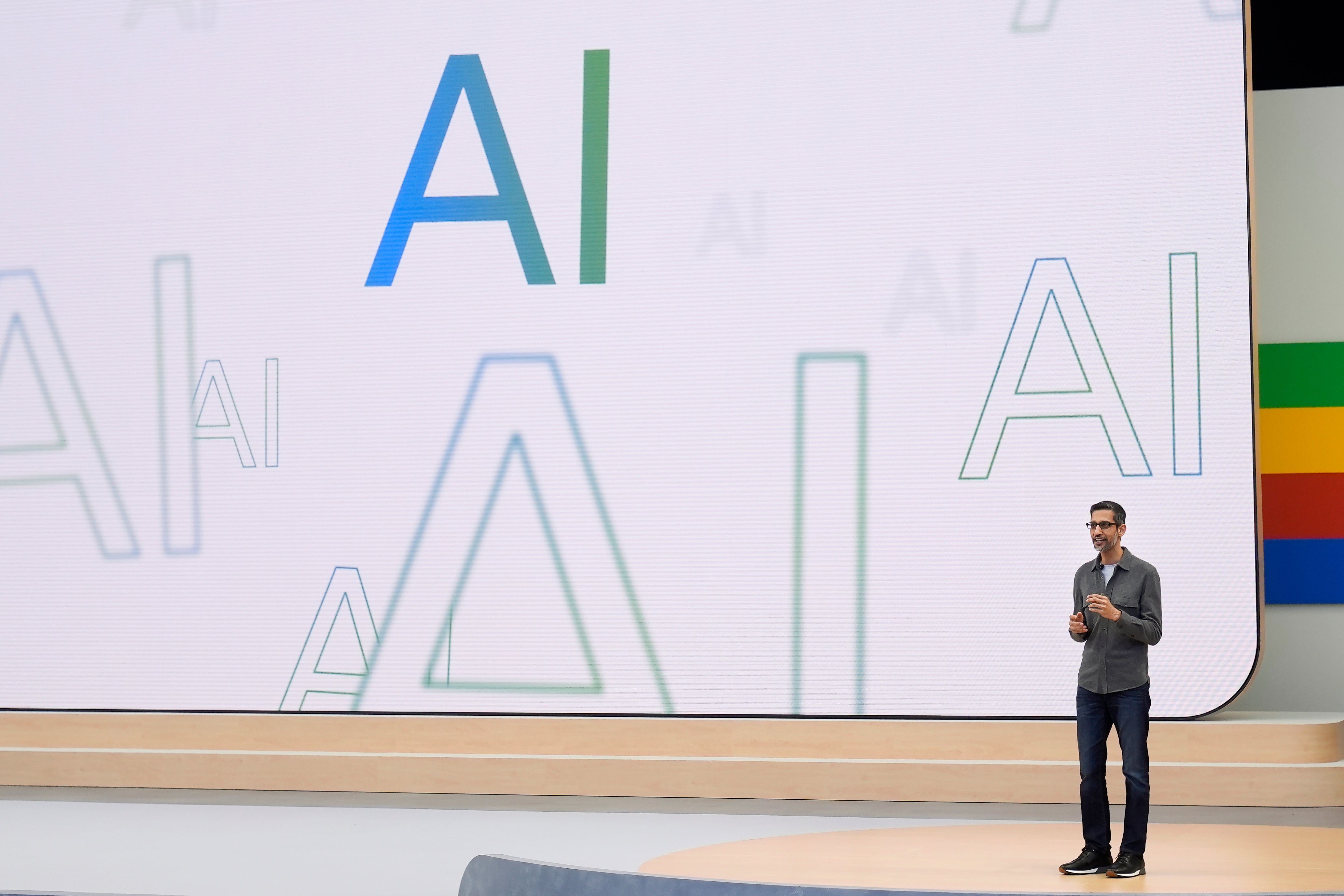Your support helps us to tell the story
From reproductive rights to climate change to Big Tech, The Independent is on the ground when the story is developing. Whether it’s investigating the financials of Elon Musk’s pro-Trump PAC or producing our latest documentary, ‘The A Word’, which shines a light on the American women fighting for reproductive rights, we know how important it is to parse out the facts from the messaging.
At such a critical moment in US history, we need reporters on the ground. Your donation allows us to keep sending journalists to speak to both sides of the story.
The Independent is trusted by Americans across the entire political spectrum. And unlike many other quality news outlets, we choose not to lock Americans out of our reporting and analysis with paywalls. We believe quality journalism should be available to everyone, paid for by those who can afford it.
Your support makes all the difference.
Google has reportedly removed ethics guidelines that previously barred its artificial intelligence systems from being used in weapons and surveillance.
As recently as January 30, the tech giant said its AI wouldn’t be used for weapons, surveillance, and other technologies that “cause or are likely to cause overall harm,” The Washington Post reports.
The Independent has contacted Google for comment.
In a blog post Tuesday from senior company officials involved in AI, the company argued there’s “a global competition taking place for AI leadership within an increasingly complex geopolitical landscape.”
“We believe democracies should lead in AI development, guided by core values like freedom, equality, and respect for human rights,” the post reads. “And we believe that companies, governments, and organizations sharing these values should work together to create AI that protects people, promotes global growth, and supports national security.”
In 2018, the company banned the use of its AI in weapons, after it faced internal protests over a Defense Department contract to use Google tech to analyze drone video.

The reported changes at Google align with a larger shift underway in the tech industry, which is showing increasing willingness to partner with U.S. defense and surveillance authorities, at the same time as many tech leaders like Elon Musk are shifting rightward politically.
In December, ChatGPT maker OpenAI announced a partnership with fellow tech company Anduril to develop technology for use in military defense against drones.
OpenAI had previously barred its technology from military use but changed its policies last year allow some collaborations.
OpenAI told The Wall Street Journal in a statement the technology developed with Anduril will only be used in defensive applications, and CEO Sam Altman said his company seeks to “ensure the technology upholds democratic values.”
Another major AI company, Anthropic, has a collaboration with tech company Palantir and Amazon Web Services to serve defense agencies.
And Palantir, Anduril, OpenAI, Saronic, and Scale AI are reportedly in talks with Musk’s aerospace firm SpaceX to form a consortium to bid on prime Pentagon contracts, in an attempt to challenge legacy contractors like Boeing and Lockheed Marin.
Despite its past alignment with Democratic candidates, the tech industry has made a concerted effort to work with the new administration, with tech companies lavishing Trump’s inaugural fund with million-dollar donations, and the CEOs of Meta, Amazon, Apple, and Google attending the swearing-in ceremony last month.
No one represents this shift more than Musk, who bucked his past support for Democrats and spent more than $290 million backing Trump and is now exercising unprecedented influence over the federal government’s spending priorities through his cost-cutting Department of Government Efficiency initiative, raising ethics alarms given the millions of dollars of contracts his companies have with the federal government.
The tech industry argues closer collaboration with the defense establishment is necessary given China’s rapid advances in AI, including the launch of DeepSeek, an AI assistant from a Chinese company that matches up against its U.S. competitors but was developed for a fraction of the cost, sending U.S. stocks tumbling.

